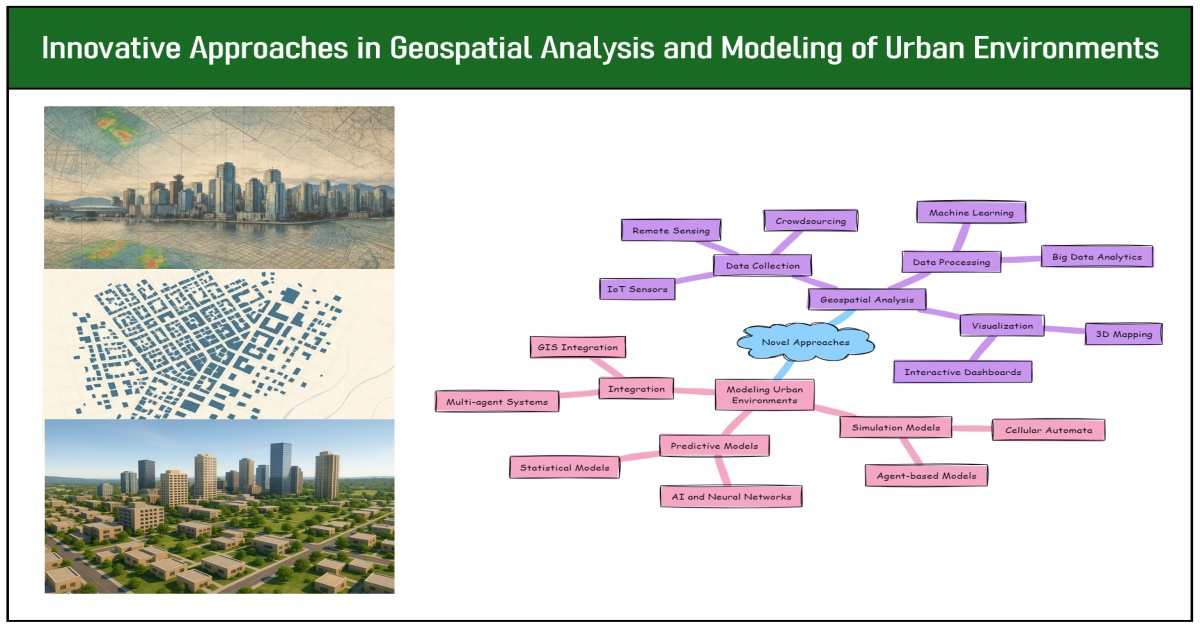Innovative Approaches in Geospatial Analysis and Modeling of Urban Environments
Topic Information
Dear Colleagues,
Geospatial analysis and modeling provide the foundation for understanding, interpreting, and shaping the dynamics of urban environments. With rapid urbanization, population growth, environmental pressures, and other factors, new approaches are needed to address the complex sustainability and planning challenges that are emerging. Advances in geospatial science offer unprecedented opportunities to develop innovative methods and applications that transform how urban areas are studied, managed, and experienced.
In this Topic, we invite manuscripts that address the challenges and opportunities in understanding the spatial and temporal dimensions of urban systems through the lens of traditional geospatial technologies, as well as emerging technologies such as artificial intelligence and machine learning. Submissions may include, but are not limited to, themes such as the following:
- GeoAI for Urban Analysis;
- Data-Driven Urban Geospatial Science;
- Spatial Statistics for Urban Analytics;
- Urban Dynamics and Land Use Land Cover Change;
- Advanced Urban Modeling and Simulation;
- Human–Environment Interactions;
- Participatory and Collaborative Analysis Approaches;
- Interoperability and Data and Model Integration.
We expect that contributions will converge on key urban challenges such as land-use and land-cover transformations, climate adaptation, and the impacts of rapid population growth, among others.
The topic "Innovative Approaches in Geospatial Analysis and Modeling of Urban Environments” provides an outlet to publish original research and application papers. We invite you to revisit established directions and chart new frontiers in the science and practice of geospatial analysis and modeling. We look forward to your contributions.
Dr. Shivanand Balram
Prof. Dr. Eric Vaz
Prof. Dr. Suzana Dragicevic
Topic Editors
Keywords
- big data analytics
- GeoAI
- GIScience
- spatial analysis
- spatial decision-making
- spatial modeling
- urban informatics
- urban sustainability
